Funeral urns are containers that hold the cremated ashes of someone who has died, allowing you to keep your loved one's ashes close to you in your home or garden. A funeral urn can also respectfully house ashes prior to scattering or burying them.
Funeral urns vary in appearance, size and what they are designed to be used for. When making funeral arrangements, there are practical considerations for the urn you choose depending on what you'd like to do with your loved one’s ashes after the cremation service.
You can also speak to your funeral provider to find out what kind of urn or ashes container they include in their prices or to help you get a suitable type of urn within your budget.
The first step to choosing a funeral urn is deciding what you would like to do with your loved one’s ashes.
Your loved one may have already communicated their wishes about what they want to happen when they die or even set up a cremation plan. If not you can discuss with your family to help you decide.
Below are the most common types of urns and what they’re best suited for.
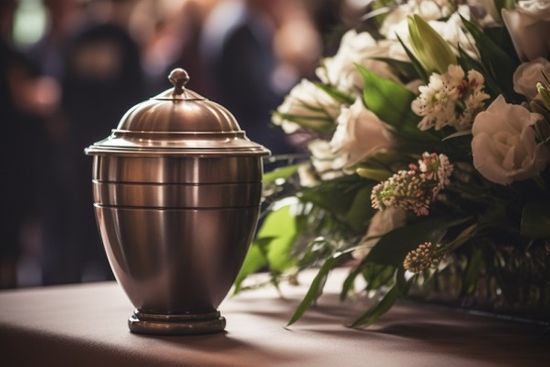
An individual urn is designed to store one person’s ashes in a container made of durable material like stone, ceramic, metal or treated wood.
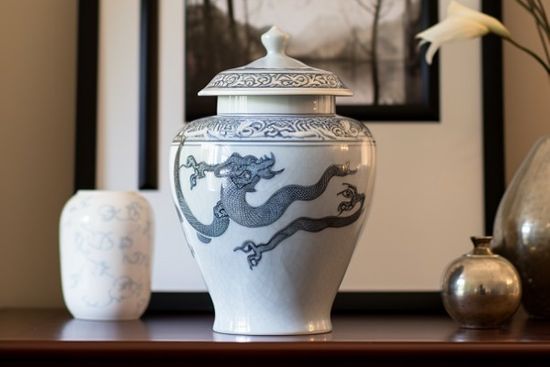
A companion urn is one urn which fits two people's ashes, for example, a couple who would like their ashes to be kept together.
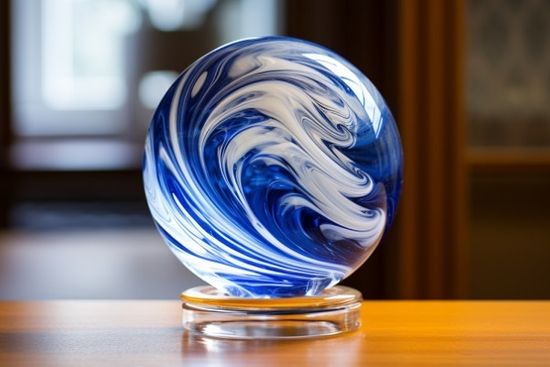
Keepsake urns are decorative ornaments which can be displayed in the home with room for a small amount of ashes.
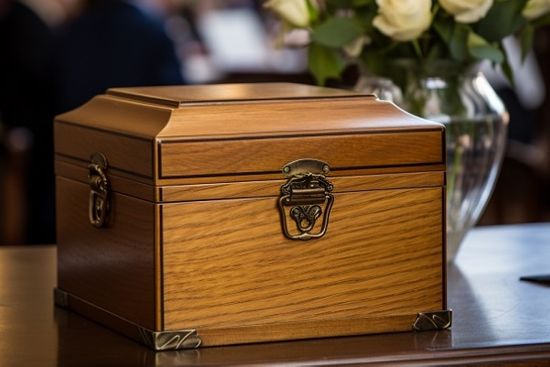
A casket-style urn is a distinctively shaped square ashes container with a lid, often made from solid wood which is treated to last.
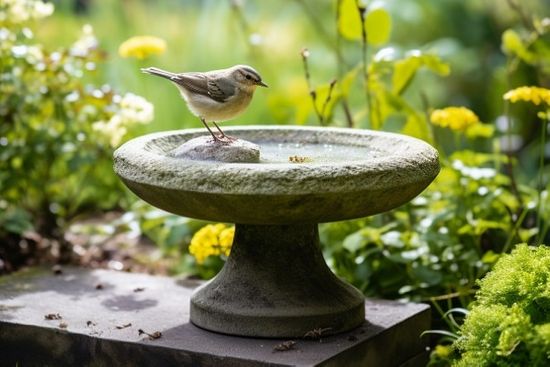
Outdoor urns come in many forms including memorial tree pots, bird baths, benches, planters, sundials or other items suitable for garden use.
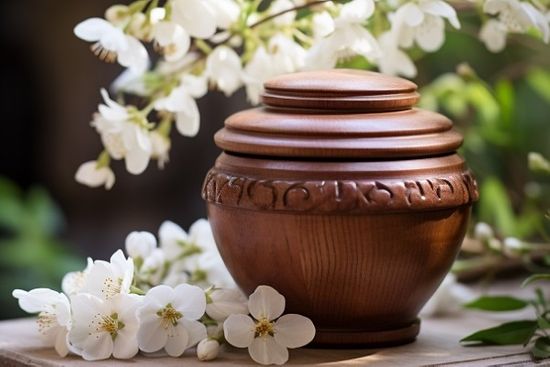
Made from biodegradable materials like untreated wood, wicker, bamboo, wool or cardboard, natural urns are designed for burying ashes.
If you would like to scatter your loved one's ashes there are two types of ashes containers you can use to do so:
Smaller infant urns are available for those who have lost a baby or child. There are also urns specifically designed for pets’ ashes.
You don’t have to have a funeral urn if you don’t want one. There are many ways you can use your loved one’s ashes in a meaningful way to remember them.
As well as being kept in an urn, scattered or buried, ashes can be transferred into jewellery, incorporated into fireworks, tattoos or vinyl records or even scattered by drone or in space.
In 2024, scattering was the most popular choice for a loved one’s ashes.
| What did people do with their loved one’s ashes? | How many people chose this?* | Suitable types of funeral urns |
|---|---|---|
| Scattered the ashes | 51% | Scatter tube, scatter capsule, simple ashes container or water urn if scattering in water |
| Kept the ashes | 27% | Any type of ornamental urn including casket, garden, individual or companion urns |
| Buried the ashes | 20% | Natural or biodegradable urn that fits the burial ground’s requirements |
| Something else | 2% | Keepsake urn, ashes jewellery or other |
If you have chosen a burial funeral, you won’t need an urn as urns are only used to contain ashes from cremation. You may like to consider the type of coffin that would suit your loved one instead.
* Percentage breakdown of what people did or planned to do with their loved one's ashes in 2024 (SunLife Cost of Dying Report 2025, sunlife.co.uk/funeral-costs)
The costs of urns vary depending on the type of urn you would like.
An urn or simple ashes container may already be included as part of the cremation services your funeral provider offers.
Choosing a decorative urn may be best if you’d like to keep the ashes or hold a celebration of life event where they are the central focus.
If you would like to keep overall funeral costs low, the best way is to choose simplicity over extravagance.
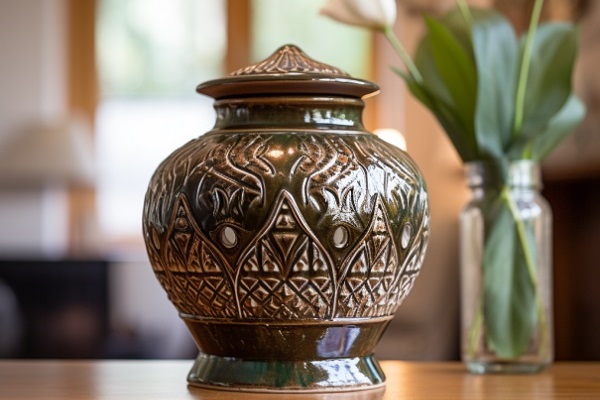
Once you've decided on a cremation service or a cremation without a funeral service, the next choice to make is what to do with the ashes. This choice influences the type of urn you need. Your budget, personal taste and your loved one's preferences can also help you decide.
There is no one particular type of urn that is best for ashes as all funeral urns are designed to house ashes for different purposes.
Speak to your funeral provider for guidance about the best type of urn to buy depending on what you want to do with the ashes. They may offer different urn options themselves or have trusted companies they can recommend.
Crematorium Manager & Registrar, Langstone Vale Crematorium
"Choosing an urn to represent the quirks and passions that made your loved one unique may bring you comfort but it can also feel like a big responsibility. You may know the perfect urn immediately when you see it, but if not, there is nothing wrong with taking your time to decide.
“Whilst working at Langstone Vale Crematorium, I have assisted many families in scattering ashes in our remembrance gardens or burying ashes in our grounds. I always feel honoured to be able to support such an immensely personal and emotionally significant experience.”
If you are burying the ashes (which you may also see referred to as interment), speak to the burial ground. They will let you know the materials that are suitable for burying and any types of funeral urns they would like you to avoid. Urns for burial may be restricted to natural materials.
You may also have the option of a loose internment where ashes are buried directly in the ground without the need for a container.
Whether you receive an urn when you arrange a cremation, depends on the funeral you have chosen. More expensive funerals are likely to include a more ornate funeral urn, whereas low cost funerals prioritise affordability instead.
At Distinct Cremations, we provide a simple cardboard biodegradable ashes container which can be used for scattering the ashes or transferring them into an urn.
We can also offer more durable and long-lasting urn choices. Call us on 01543 212000 to discuss the options available and find out more about our respectful and inexpensive funerals.
Call us on 01543 212000
Once we have carried out the cremation, we give you a choice of what you would like to do with your loved one’s ashes.
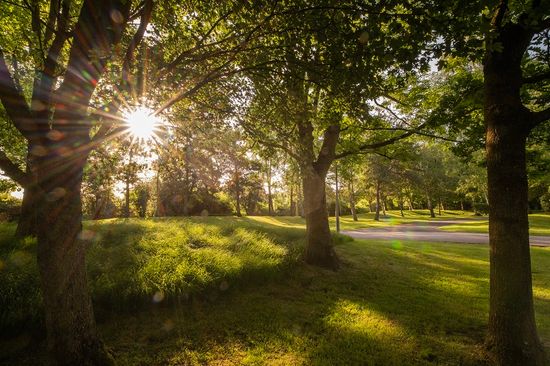
The ashes can be scattered in the crematorium grounds. We can arrange for friends and family to attend the scattering of the ashes. This can be a meaningful way to say a final goodbye, especially if you choose a direct cremation funeral.
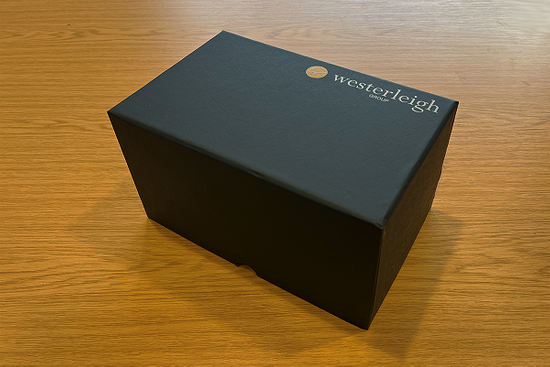
Alternatively, we can deliver the ashes back to the family. We operate all of our own services so our caring team who collect your loved one and provide our funeral transport are the ones who personally return the ashes.
Still have questions about funeral urns? Learning more about choosing a funeral urn will help to make your choice simpler.
There is no law against dividing ashes, although some religions like Catholicism are against doing so. Ashes can be split up to be kept by multiple people or to be used in different ways.
You may like to have an ashes scattering memorial event and also keep some ashes in a keepsake. Or one family member may like to bury the ashes to have a grave to visit and lay flowers. Another family member may prefer to keep or scatter the ashes.
Cremated ashes do not spoil so ashes kept in an urn can last through the generations and be passed down to keep the memory of your loved one alive.
If you plan to keep your loved one’s ashes for a long period of time, you should choose a funeral urn made of a durable and long-lasting material. Popular urn choices made to stand the test of time include metal, stone, treated wood or ceramic urns.
You can pour the ashes into the urn yourself. However, if you don’t feel emotionally able to do so you can ask a family member or friend to help you with this.
The funeral provider helping you plan a funeral service may also be able to support you in transferring your loved one’s ashes into your chosen funeral urn. You may need to have the urn ready when the ashes are returned or deliver the urn to your funeral provider.
Whether you're arranging a funeral for someone who has died, anticipating the death of a loved one or thinking about your own funeral arrangements ahead of time, we can support you.

We take care of the funeral arrangements at every stage from collection of your loved one and help with the necessary paperwork to the cremation itself.
Arrange a funeral
Whilst arranging a funeral for a loved one, you may find yourself thinking about your own funeral arrangements. A funeral plan lets you decide on and pay for your funeral in advance.
View our funeral plans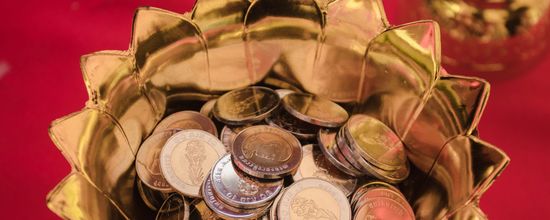
One way to bring comfort whilst grieving is to give back. Arranging a funeral charity collection can help those attending the funeral feel empowered by helping others.
Funeral donations to charityWe offer the highest level of support, but don't just take our word for it. Below are recent reviews from customers who bought a funeral with us.





